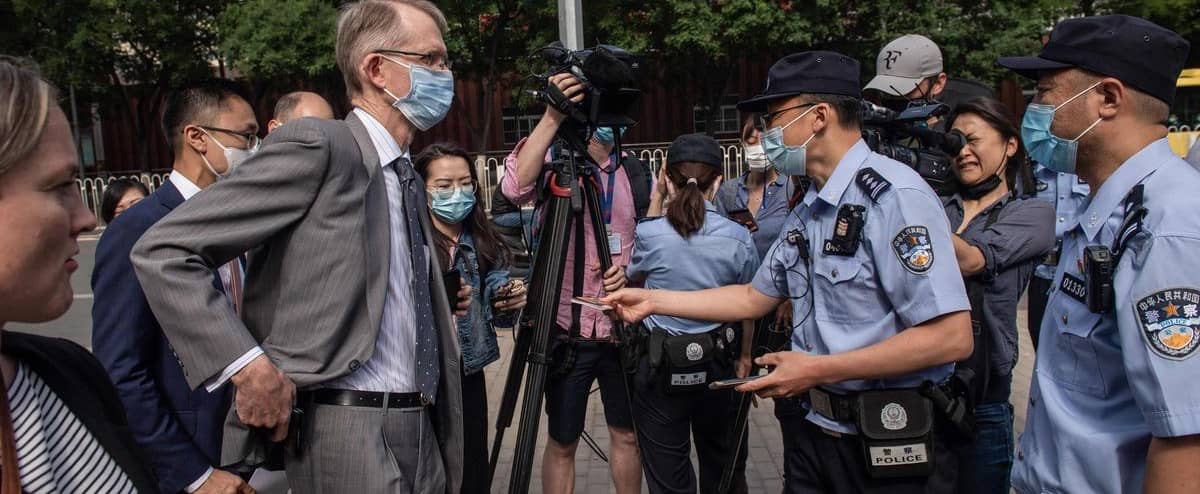Beijing | The trial of Australian writer Yang Jun, who has been imprisoned for more than two years in China on charges of “espionage”, was held Thursday in Beijing amid escalating tensions between China and Australia.
Novelist and blogger, a supporter of democratization in China, Mr. Yang is a former Chinese diplomat who became an Australian citizen in 2002.
Also known by his pen name, Yang Hengjun, he was arrested while in China in January 2019, while in the United States.
His trial was held behind closed doors in the presence of a large police presence near the No. 2 Intermediate People’s Court in Beijing. Judgment will be known later.
Australian Ambassador Graham Fletcher, who was denied access to court, described the decision as “regrettable”.
“We have had concerns for a long time about this trial, especially about its transparency,” the diplomat told reporters outside a courtroom.
In response to a question, Chinese diplomatic spokesman Zhao Lijian considered the closed session “legitimate”, under the pretext that the trial included “state secrets.”
The press was placed at a safe distance, behind security lines and a large police force.
Agence France-Presse saw a convoy of at least two police trucks and several cars, including a black car with camouflaged license plates, entering the courtroom.
It was unclear if Yang Jun was actually in one of the vehicles.
“I’m not afraid anymore”
Yang Jun, 56, is one of two Australians held in China on charges of espionage amid worsening relations between Canberra and Beijing.
Yang Jun, who was imprisoned for 26 months, admitted his poor health, but says he is still “spiritually strong,” in a letter consulted by AFP, written from his cell with the help of the consulate and addressed to his supporters.
“I will steadfastly face suffering and torture (…), I am no longer afraid,” he continues.
The Australian, Cheng Li, a former broadcaster of CGTN, has been detained since last August in the name of “national security”.
Soon after, two Australian journalists, fearing they would be arrested, chose to leave China after being questioned by Chinese police.
Diplomatic relations between the two countries have continued to be tense since Canberra called for an independent investigation into the origin of the coronavirus pandemic and banned telecommunications giant Huawei from building a 5G network in Australia.
Canberra last month canceled the agreement signed by the Australian state of Victoria to join the “New Silk Roads”, a pharaonic infrastructure investment project launched by President Xi Jinping in 2013.
China has taken a raft of measures against dozens of Australian products, including barley, beef and wine.
Beijing blames Canberra for the Australian police raids on the homes of Chinese journalists residing in Australia, which were carried out as part of an investigation into a possible impact campaign.

“Extreme twitteraholic. Passionate travel nerd. Hardcore zombie trailblazer. Web fanatic. Evil bacon geek.”

